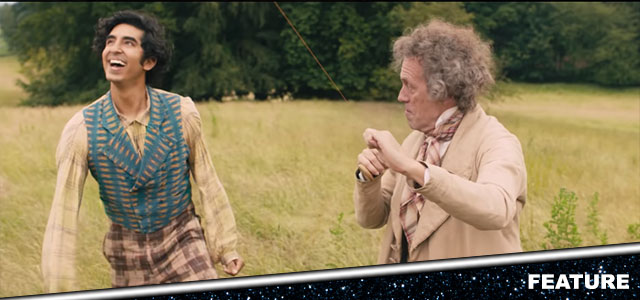
When Charles John Huffam Dickens was scribing his weighty tomes all those years ago, he could never have imagined that two centuries later, people would not only still be reading them, they’d be watching versions of them on a giant screen too.
Many of Dickens’ works have been committed to celluloid, with each new adaptation delivering a fresh take on the legendary writer’s austere Victorian yarns.
In 2020, we're treated to a delightful new Dickens adaptation, The Personal History of David Copperfield. Written and directed by Armando Iannucci (The Death of Stalin), it’s not so much a faithful representation of the author’s 1850 novel as a comedy-drama based on the titular character’s life.
With Dev Patel (Slumdog Millionaire) in the main role, and Peter Capaldi, Hugh Laurie, Tilda Swinton and Ben Whishaw completing the all-star cast, it’s definitely one to go and see when it arrives at Cineworld cinemas on the 24th of January.
To celebrate the release of The Personal History of David Copperfield, here we take a look back at some of the other films that have been adapted from Charles Dickens novels…
1. Great Expectations (1946)
In the BBC’s Big Read survey, conducted in 2003, Great Expectations was named Britain’s favourite Charles Dickens novel. And this post-war adaptation certainly did the book justice – despite the fact that director David Lean had reportedly never read one of Dickens’ books when he signed up to the project.
Dickens’ sombre tale about an orphan boy who becomes a gentleman was brought to life by an impressive cast that included John Mills, Jean Simmons and, in his first ever major film role, Alec Guinness. While the movie was – ahem – pipped to the Best Picture Oscar by Gentleman’s Agreement, in 1999 the legendary film critic Roger Ebert hailed it as “the greatest of all the Dickens films”.
2. A Tale of Two Cities (1958)
Dickens’ best-selling novel (it’s shifted over 200 million copies worldwide), A Tale of Two Cities was adapted for the big screen by Ralph Thomas, probably best known for his Doctor series of films.
Despite having colour technology available to him, Thomas chose to portray this French Revolution tragedy in black and white, explaining that the book “was written in black and white”. He later regretted the decision, though, admitting that the film would’ve been more successful had it been in colour.
Nevertheless, the most expensive British production of 1958 was still a moving affair, with Dirk Bogarde putting in a convincing performance as the selfless Sydney Carton, who trades places with a condemned French aristocrat so that he can start a new life.
By the way, Christopher Nolan is among the fans of Dickens' original book, and once confessed that its scenes of turmoil had inspired his 2012 movie The Dark Knight Rises.
3. Oliver! (1968)
Dickens’ 1839 novel Oliver Twist – another sombre tale about an orphan boy – was transformed into a completely different beast in Carol Reed’s colourful adaptation, thanks in no small part to Lionel Bart’s incredibly catchy score.
With upbeat ditties like 'Food Glorious Food', 'I’d Do Anything' and 'Consider Yourself' to sing along to, it was easy to overlook the fact that Dickens’ story was a commentary on major social issues such as child slavery and domestic abuse.
However bizarre it sounds, though, the formula worked a treat – and Oliver! ran away with the Best Picture and Best Director gongs at the following year’s Oscars. Fagin would’ve been proud.
4. Scrooge (1970)
Probably the famous festive story there is, Dickens’ 1843 novella A Christmas Carol is a powerful tale of self-discovery and redemption, complete with wretched children (no orphans this time) and seasonal ghosts.
There have been a number of film adaptations over the years – including, of course, The Muppet Christmas Carol – but the best version of all has to be the Ronald Neame-directed Scrooge. Starring Albert Finney as the miserly money-lender who comes good, the film turned Dickens’ story into a musical.
While it was a critical success, receiving four Oscar nominations, the movie wasn’t such a happy experience for Alec Guinness, who played Jacob Marley. Not only did he suffer a double hernia during the shoot, his big musical number was also cut from the final movie. Bah humbug!
5. Nicholas Nickleby (2002)
Long before he became a mainstay on the hit US TV series Sons of Anarchy, Charlie Hunnam donned a pair of breeches for Douglas McGrath’s adaptation of Dickens’ 1839 novel – a coming-of-age story about a young man who has to support his mother and sister after his father dies.
Hunnam was joined by a glittering cast that included – deep breath – Christopher Plummer, Timothy Spall, Anne Hathaway, Barry Humphries, Jim Broadbent, Nathan Lane, Alan Cumming, Edward Fox, Tom Courtenay and, in only his second post-Billy Elliot role, Jamie Bell.
Legend has it that Bell’s audition for the crippled servant Smike was so moving, it left McGrath in tears. Whether that’s true or not, the film certainly went down a storm, with Variety describing it as “a delightful experience”.
6. Bleak House (2005)
This is a BBC miniseries as opposed to a movie, but it's such a terrific adaptation of the author's work that we had to include it. Bleak House is widely considered one of the author's most powerfully ambitious novels, a direct attack on the complexities of the British legal system and the innocent souls who become ensnarled within it. This highly compassionate small-screen adaptation is faithful to both the broad sweep and subtle nuances of Dickens' text, with a clutch of terrific performances led by Charles Dance as the terrifyingly icy lawyer Tulkinghorn.
The Personal History of David Copperfield opens at Cineworld on the 24th of January. Let us know what your favourite Charles Dickens adaptation is by tweeting us.
As we approach another spectacular year of cinema in 2020, now's the perfect time to join Cineworld Unlimited. For a set monthly price, you can enjoy preview screenings and a whole lot more.
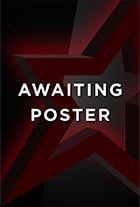
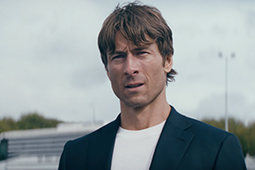
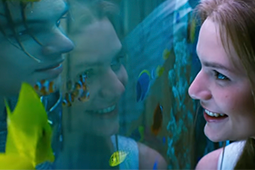
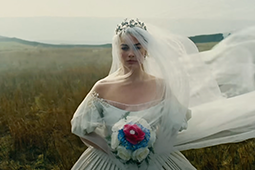

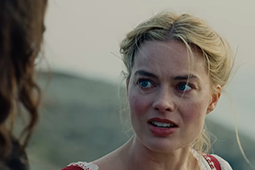
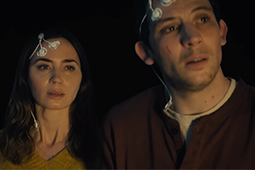
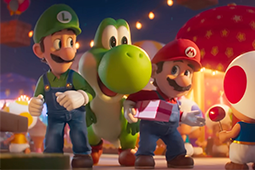
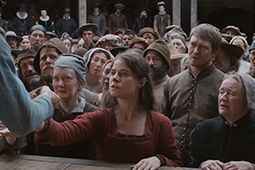


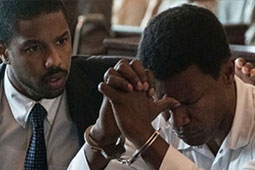


.jpg)
.png)



.jpg)


